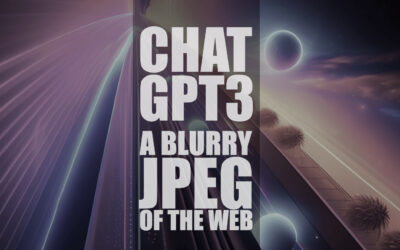I should really visit Salon.com more often. Every time I go there I find something interesting, challenging and thought provoking. My recent foray there led me to a book review written by Laura Miller (The road to Wikipedia). Miller reviews “Reinventing Knowledge: From Alexandria to the Internet” by Ian McNeely and Lisa Wolverton. The book focuses on the “production, preservation and transmission” of knowledge and how that has changed over time, from an oral culture (such as in ancient Greece) to today’s world of the Internet and Web 2.0. Though I haven’t read the book the review has some interesting insights worth thinking about…
As the review says, the authors take a long and somewhat institutional view of knowledge arguing that it has been
… fundamentally reinvented fully six times in the history of the West. The six institutions that achieved these reinventions are the library, the monastery, the university, the “Republic of Letters,” the disciplines and the laboratory.
The review (and I am sure the book as well) is worth reading just to find out more about how the authors describe these six categories. One thing not mentioned in the review is that though these categories seem to appear one after the other, in historical and chronological terms, it is not that the advent of a new institutional frame led to disappearance of a prior one. Libraries continue to exist, as does the university – though the new institutions of knowledge redefine how we think about these the ones that came before. In a way this is similar to how the advent of TV did not replace the radio, but rather changed its role in our lives.
The authors describe these six institutions as doing four key things: decide what constitutes knowledge; how it should be organized for efficient access; how it could be taught to others; and finally, how it should be preserved for future generations.
There is a chicken or egg conundrum at the heart of discussion of technology, knowledge, and society. Was Chinese society about making exact copies (through rubbings of stone carvings) because of a belief in the authority of the text or the state or was it a belief in the authority of the state that led to this emphasis on making exact copies. Similarly, was the western idea of making written copies, that could be embellished, modified, annotated by readers/writers dependent on western ideas of autonomy and individualism or vice versa. Clearly these are questions that do not have clear answers and most probably the answer lies somewhere in a complex transaction between different agents (human, institutional and technological). It is however fascinating to see how this transaction plays out through history and across different cultures.
Interestingly enough, the authors do not feel that the Internet (despite all the hype to the contrary) is not a new reinvention of the institution of knowledge at par with the six they describe. A part of this be because they argue that the Internet’s multiple outlets for self expression
if anything, make the pursuit of reliable, authentic knowledge more, not less, difficult online, by drowning out traditionally credentialed cultural gatekeepers. Relatively few networked forums provide a truly democratic alternative to the focused, substantiated, reasoned — and elitist — debate that still governs the disciplines.
In some ways the fundamental limitation of the book (and here my interpretation must be taken with a grain of salt, because I am basing this on my reading of a review rather than the book) is imposed by the institutional frame that the authors start with. If you see knowledge in institutional terms it is not a surprise that the relative anarchy of the Internet seems to go against the need for authority and reliability.
Roy Amara famously said that “We tend to overestimate the effect of a technology in the short run and underestimate the effect in the long run,” and I wonder if the authors of the book (and all of us) are just too close to the Internet phenomena to truly understand how it is changing us (and also changing itself in the process). Of particular interest to me is how this new evolving frame of knowledge will lead to changes in how we teach.




0 Comments